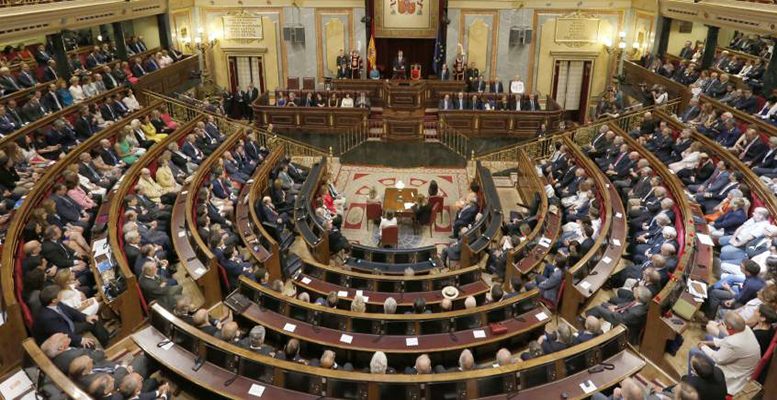Juan Luis Manfredi (The Conversation) | The elections in Spain do not represent a second round nor a referendum or a presidential test. They cannot be compared to those of last April 28 despite the strategic over-action of political leaders. The socialist party had too much confidence on their advisors, the CIS public research institute poll and a social media-based campaign.
In Spain, a multi-party system has flourished with its own characteristics and might stay for a while. In the new legislature, the scenario is even more complex than 6 months ago. Spaniards – and their rulers – are still learning to navigate without strong bipartisanship. We have to learn the meanings of the words negotiate, coalition, stability or consensus in the appointment of senior officials. No one said it would be easy.
The sad victory of the left
The socialist party (PSOE) fluctuates, but maintains its electoral power. It is a sad victory, which also sinks his fellow travelers to one side and the other side of the parliamentary arch. It does not offer great possibilities of government, since the collapse of extreme leftist Unidas Podemos not be complemented by a rise in Más País.
On the right, the disappearance of Ciudadanos (C’s) forces combinations that anticipate instability. Sanchez will still be at the head of the negotiations, but his power to expand the electoral base or build bridges is debatable. The winner has lost, both due to the emotional wear and tear of their voters and the loss of possible support. It is not in a better position.
The PP’s respite
The Popular Party (PP) has regained its pace. He returns to the scene as a solid alternative for the government, either now or in the next legislature. It is the axis on which the opposition will pivot with a capital letter. It was expected. The popular voter is quite faithful to his party, although the flashes of Ciudadanos and the reputational crisis (aka, corruption) overshadowed the last stage. This time, plus the lesson learned from recovering Ana Pastor and other clean faces of that time, has returned the illusion to her voter. Now he will have to respect the far rightist party Vox more, with the risk of electorate sharing. Their leader Pablo Casado will have room for building his candidacy in the medium term.
Swollen far right
The far right (VOX) is the winner of this election. Until a few months ago they only had some representatives in scattered small towns and little political activity. They have learned very quickly from the trumpist ways of campaigning: a lot of media noise, direct attention to the vulnerable population in the face of thorny issues (migration) and a hint of euroscepticism (Brussels does not represent Europe).
The far right’s is a Spanish nationalism that builds on social discontent with the institutions and captures votes in neighborhoods of progressive tradition and in conservative sectors tired of autonomy and other threats, real or imaginary. It is a net winner because now it is a party that can be part of all the institutions, it will have representation in many official bodies such as the Congressional Bureau or its permanent Deputation, as well as be a part of the new institutions.
Less Unidas Podemos
Their voters like the orthodoxy of Unidas Podemos. Despite the loss of direct vote and seats, the extreme left party maintained about 12% of the votes. It is not a disaster, but it does show the faint path of the purple alternative. Their leader, Pablo Iglesias, will maintain his firm stance, which is what his voters like.
Ciudadanos fades away
Ciudadanos (C’s), the liberal, sometimes center-right, sometimes center-right formation, fades away. Literally. It reached the sky in April, obtaining a similar result to the old center party UCD in the general election of October 1982. The formation does not have a faithful voter or a clear identity, because hard-handed supporters in Catalonia can now vote for Vox without complexes, while liberal progressives have definitely returned to the PSOE. The classic conservatives return home, the PP. So much vote transfer has ended their leader Albert Rivera’s political project, which loses strength even in Catalonia. The party has not overcome the maturity crisis that we pointed out in April. Now not even Inés Arrimadas, Ciudadanos’ spokeswoman in Congress, seems a credible alternative.
Catalan nationalist stagnation
Catalan nationalists do not grow, but they do not fall. They represent a type of voter faithful to ideals, which are divided between ERC and the successive nomenclatures of Junts per Cat or the emergence of the CUP. The 23 deputies will have space to present their ideas and make visible the discomfort of a certain part of Catalan society with the political model in force since 1978.
Basque nationalists grow
In the Basque Country, conservative nationalist party PNV and the leftist nationalism of Bildu both obtain better results than in the previous election. Their voice will be relevant to the political stability of the coming years. The rest of parties such as Nafarroa Bai, Teruel Existe, the PRC or the Coalition for Melilla indicate the opportunity of the local parties to leverage the disaffection and project it to Congress.
In sum, the XIV legislature in Spain will bring strong emotions. Do not miss it. It may not last long.
*This article has been slightly edited for international readers. You can read the original text in Spanish here.





